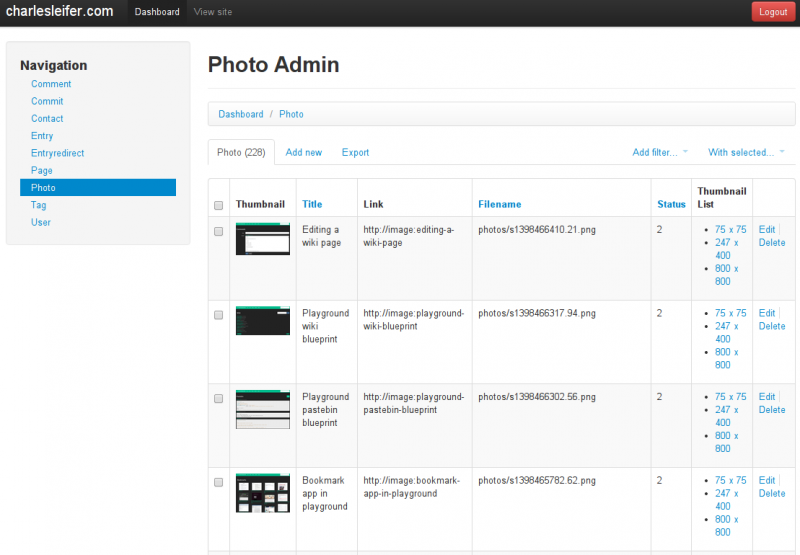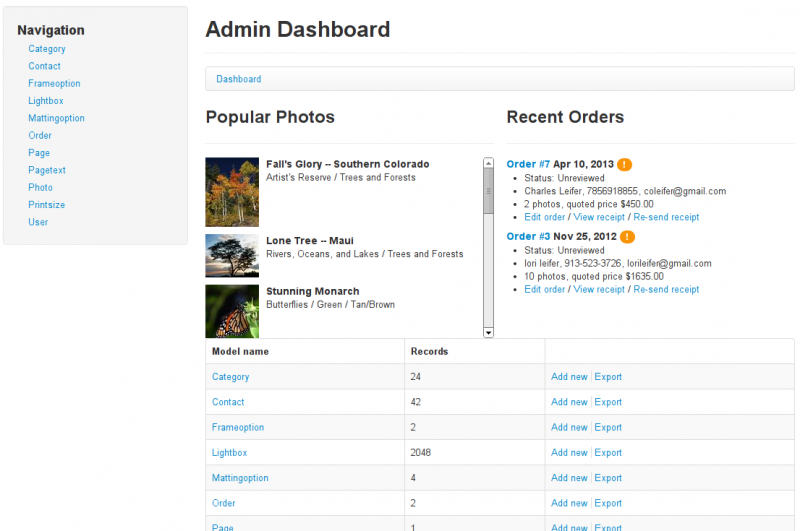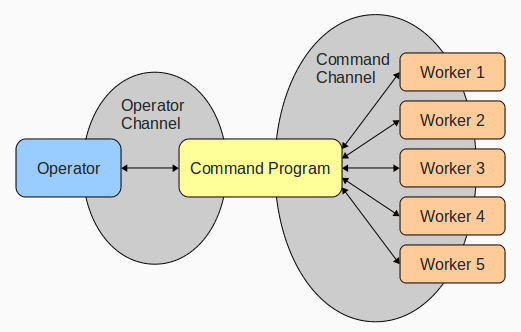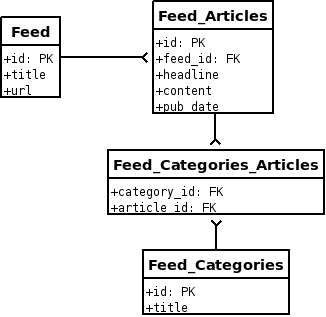Entries tagged with python
Redesign of flask-peewee admin
Recently I stumbled across the twitter bootstrap project, which is a set of cross-browser compliant stylesheets and scripts. I liked them so much that I've ported the admin templates to use bootstrap. Here's a little screenshot of the design refresh taken from the example app:
I hope this will make the admin easier to work with in the long-run!
Integrating the flask microframework with the peewee ORM
I'd like to write a post about a project I've been working on for the past month or so. I've had a great time working on it and am excited to start putting it to use. The project is called flask-peewee -- it is a set of utilities that bridges the python microframework flask and the lightweight ORM peewee. It is packaged as a flask extension and comes with the following batteries included:
- Admin interface a-la django
- RESTful API toolkit a-la tastypie
- Authentication system
A simple botnet written in Python
As of this week we instituted a regular "hackday" at my office -- anything goes, you can work on whatever you like, so at 11:30 the night before the hackday started I decided on writing a simple IRC-powered botnet.
Peewee, a lightweight Python ORM - Original Post
For the past month or so I've been working on writing my own ORM in Python. The project grew out of a need for a lightweight persistence layer for use in Flask web apps. As I've grown so familiar with the Django ORM over the past year, many of the ideas in Peewee are analagous to the concepts in Django. My goal from the beginning has been to keep the implementation simple without sacrificing functionality, and to ultimately create something hackable that others might be able to read and contribute to.
Self-referencing many-to-many through
How to implement self-referencing many-to-many relationships in Django. Example use cases are modeling asymmetrical following (a-la twitter) or symmetrical friendship (a-la facebook).
Looking at registration patterns in Django
Django uses several types of registration patterns for some of its most notable features. This entry looks at the way django implements its different types of registries.
Describing Relationships: Django's ManyToMany Through
In this post I'll describe extending many-to-many relationships in Django to support additional columns on the junction table. I'll be using the following table structure as the starting place. Imagine an RSS aggregator consisting of feeds, articles and categories. Articles come from a feed and may belong to any number of categories.



